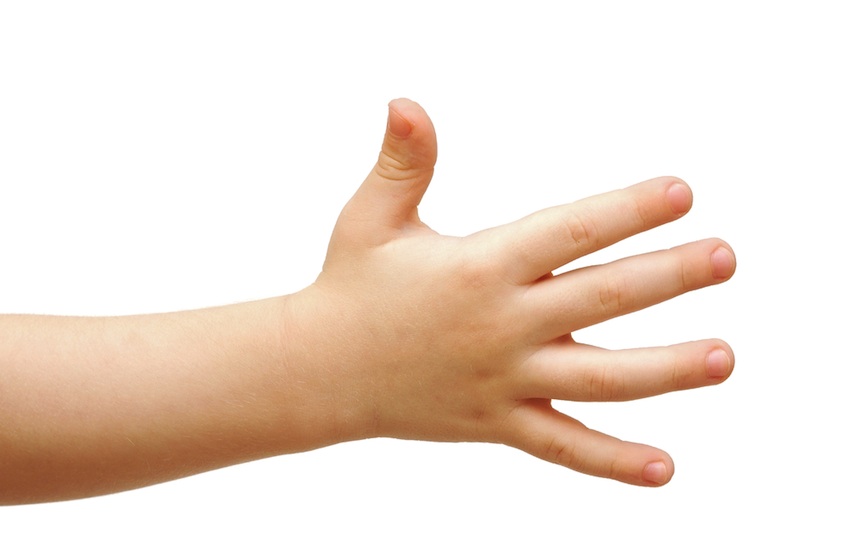Boston Children’s Will Start Hand Transplant Program

Hand photo via Shutterstock
Boston Children’s Hospital is having a very, very good two weeks. Last week, it was ranked second-best pediatric hospital in the country by U.S. News and World Report, and shortly thereafter the hospital announced that its researchers may be close to finding a cure for type 1 diabetes. As if that wasn’t enough, the hospital reported today that it will start the world’s first pediatric hand transplant program.
“Adult hand transplants have been done in the United States and worldwide, and we just felt that the data was good enough at this point to show a clear improvement in risk benefit over the last decade or so,” says Dr. Amir Taghinia, one of the researchers leading the program. “We can do it safely and controllably, and we’ve also shown that patients can get remarkably good function. And so as a result of that, the natural sort of continuation of this work would be to offer it to younger and younger patients.”
The hospital is looking for patients older than 10 who have been missing both hands for over a year but are otherwise in good health to be involved in the research-based program. Children missing one hand but having problems with other, or who are missing one hand but are on immunosuppression medication for an organ transplant are also eligible. Taghinia says there is no set date for the first transplant, and that even once a patient is picked, the hospital will have to wait until a donor of similar complexion, size, and other factors is found.
Although hand transplants are now quite successful, if rare, in adult patients, only one such procedure has ever been done on a child: A 2000 twin-to-twin transplant in Malaysia. Taghinia says that’s, in part, because of ethical concerns. “Because [children are] growing and they need long-term immunosuppression, does the risk of immunosuppression justify the benefits they would receive from the transplantation?,” he says. “We feel here at Children’s, in the case of a patient who’s missing both their hands, the benefits would justify taking those risks.” And, he added, children’s nerves heal better than those of adults, and “they’re able to regain their functional outcome much better than adults can.”
So while Taghinia says the transplantation field still has a ways to go in terms of controlling the immune system, we can’t help but feel that with reports of enhanced prosthetics, new transplant surgeries, and regenerated organs in the news all the time, someday soon, losing a limb, organ, or body part may not only be treatable, but reversible.


